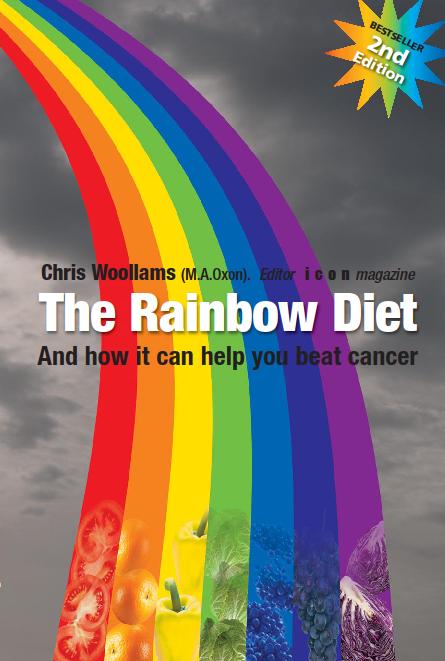
It’s Raspberries To You

HPV vaccines and cervical cancer are a controversial topic. Clearly the vaccine usage can cause harm and no one yet knows whether in real life it can really prevent cervical cancer by reducing HPV infection.
Ellagic acid and HPV infection
Ellagic acid is a proven anti-carcinogen, anti-mutagen and anti-cancer initiator.
It is plentiful in the foods we eat, especially in fruits, plants and nuts (free form as ellagitannins or as a glucoside).
Initial studies and clinical tests have shown that it prevents the destruction of the p53 gene in cancer cells and it seems to form "joints" with DNA by binding to sites which would otherwise be attached to mutagens or carcinogens.
Dr. Daniel Nixon at the Hollings Cancer Institute, at the Medical University of South Carolina (MUSC) began studying ellagic acid in 1993.
Published research data from MUSC includes the findings that Ellagic acid:
* Is a ’potent’ anti-carcinogen.
* Slows the growth of abnormal colon cells.
* Has antibacterial and anti-viral properties.
* Can prevent HPV infected cells developing, and infected cervical cells experience apoptosis (normal cell death).
* Increases the rate of metabolism of carcinogens and prevents the development of cancer cells.
* Affects and inhibits the action of arylamines, known as potent carcinogens.
* As a powerful antioxidant it neutralises the affects of aflatoxins produced by parasites within the body.
And all this came from eating just one cup of red raspberries per day!
Research has shown that ellagic acid can protect the p53 gene. This gene has the ability to rebuild damaged DNA under normal conditions. But as part of cancer development, it becomes switched off. There is evidence that this is a factor in breast, prostate, pancreas, skin, cervical and colon cancers.

Preliminary studies are extremely positive

After showing that ellagic acid causes ’G-arrest’ (inhibiting and stopping cancer cell division) within 48 hours and causing apoptosis (cancer cell death) within 72 hours on a number of cell lines (breast, prostate, pancreatic cancer and more), MUSC have launched a double blind clinical trial on 500 women over a two-year period, studying its effect on cervical cancer.
All this seems to have been upstaged by a group of Italian scientists who published a paper (1) on their work in 2017. They showed that of women who were infected with HPV, whether they had cancer lesions of the cervix or not, there was a significant reduction in number infected by HPV after 6 and 12 months, if they took a combined pill of ellagic acid concentrate and graviola (also called soursop).
Go To: Graviola plus ellagic acid restricts HPV infection
Raspberries have high concentrations of ellagic acid. The levels used usually by Hollings were 150 gms of raspberries, which provided 40 mg of ellagic acid. However this route is wasteful as much of the ellagic acid bioactive compound - ellagitannin - is contained in the seeds which pass straight through the gut. Hollings have now patented an extraction method from the seeds.
Maybe Morosetti and his Italian researchers were right to use supplements.
Sources of ellagic acid
Ellagic acid, an extremely stable polyphenol, is found in some 46 different fruits and nuts, for example pomegranate, red raspberries, blackberries, strawberries, blueberries, walnuts, pecans and cranberries.
Of course you can now buy supplements - but why not eat the above? You only need half to one cupful according to Dr. Nixon. The Italians used a double supplement - you could do that too.

 At last, the definitive, research based book on how to build a diet to help beat cancer. Click here to read about it.
At last, the definitive, research based book on how to build a diet to help beat cancer. Click here to read about it.
References
1. Morostti G et al, Ellagic acid and annona muricata in the chemoprevention of HPV-related pre-neoplastic lesions of the cervix.
Please be clear: At CANCERactive we do not consider the above compound to be a cure for cancer, despite what the research says or experts doing the research may claim. The above, is an article on the compound from published research and expert opinion in the public domain. At CANCERactive we do not believe that any single compound (drug, vitamin, whatever) is a cure for cancer. We believe that people can significantly increase their personal odds of survival by building an Integrated Programme of treatments. Equally, cancer prevention is best practiced through a width of measures.